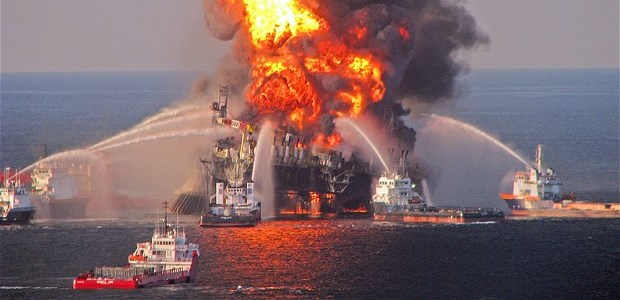
CSB 'Disappointed' President's Budget Proposes Elimination
"The American public are safer today as a result of the work of the dedicated and professional staff of the CSB. As this process moves forward, we hope that the important mission of this agency will be preserved," Chairperson Vanessa Allen Sutherland said in a statement March 16.
Five months after the U.S. Chemical Safety Board (CSB) released its 2017-2021 Strategic Plan – it was released less than three weeks before Donald J. Trump won the 2016 presidential election – the new president's first budget proposal proposes to eliminate that agency. The board is an independent agency that investigates serious chemical incidents, such as the Deepwater Horizon explosion and oil spill in the Gulf of Mexico, the West, Texas explosion of ammonium nitrate at a fertilizer storage facility, and the Freedom Industries leak.
That leak on Jan. 9, 2014, of an estimated 10,000 gallons of crude Methylcyclohexanemethanol into the Elk River near Charleston, W.Va., occurred when a 46,000-gallon storage tank failed at the Freedom Industries site in Charleston. The drinking water supply for about 300,000 residents of that area was contaminated.
CSB is a small agency with an annual budget of about $12 million. The board consists of five members, but four are currently serving: Chairperson Vanessa Allen Sutherland, Board Member Kristen Kulinowski, Board Member Manuel "Manny" Ehrlich, and Board Member Rick Engler.
Thursday afternoon, March 16, the CSB website featured a statement from Sutherland about the proposed zeroing out of her agency:
"The U.S. Chemical Safety Board (CSB) is disappointed to see the President's budget proposal to eliminate the agency," it said. "The CSB is an independent agency whose sole mission is to investigate accidents in the chemical industry and to make recommendations to prevent future accidents and improve safety. For over 20 years, the CSB has conducted hundreds of investigations of high consequence chemical incidents, such as the Deepwater Horizon and West Fertilizer disasters. Our investigations and recommendations have had an enormous effect on improving public safety. Our recommendations have resulted in banned natural gas blows in Connecticut, an improved fire code in New York City, and increased public safety at oil and gas sites across the State of Mississippi. The CSB has been able to accomplish all of this with a small and limited budget. The American public are safer today as a result of the work of the dedicated and professional staff of the CSB. As this process moves forward, we hope that the important mission of this agency will be preserved."